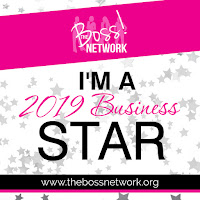Turning a No Into a Yes by Nancey Harris
Ms. Nancey Harris is the Co-founder and COO of Vontélle Eyewear, a transformative, luxury brand that celebrates the diversity and beauty of different cultures, with an emphasis on fashion, fit, and function.
Prior to launching Vontélle, she was a sales executive at Paramount (BET, MTV, VH1, Nickelodeon), and BLACK ENTERPRISE.
She worked as EVP of Wendy Williams Productions and was also Executive Director of The Hunter Foundation.
Nancey graduated from Morgan State University with a bachelor’s in mass communications.
Nancey is actively in the Goldman Sachs 10k Small Businesses Program - cohort 40, an active member of Goodie Nation, 2022 2022 Tory Burch Fellow, 2022 Ernst & Young Entrepreneurs Access Network alumni, 2022 NY PACE alumni, Amazon Black Accelerator, BOSS Network alumni, Future Collective by FIVERR alumni, JP Morgan Chase’s Advancing Black Entrepreneurs program graduate and Fearless Fund alumni.
Nancey is an active member of Delta Sigma Theta Sorority, Inc., Luminary, International Association of Women, a board member of Power of We! an organization for children with disabilities, and a volunteer graphic designer for Down Syndrome Diagnosis Network.
Nancey is a dedicated wife, mother, and advocate for her wonderful nine-year-old son, who has Down Syndrome and is also on the autism spectrum.
Even before co-founding Vontélle Eyewear, I built a successful career as a sales executive with renowned organizations such as Viacom (MTV, VH1, BET, CMT, TV Land), Black Enterprise Magazine, and The Wendy Williams Foundation, among others. During this time, I often encountered the word "No." However, I never saw it as a rejection. Instead, I interpreted it as an opportunity to educate others about our brand, navigate the decision-making process, highlight potential budget allocations, demonstrate our perfect fit, or even help them understand their own brand and audience better.
1. Understand the "No"
Before you can turn a "no" into a "yes," you need to understand the reasons behind the rejection. Is it due to budget constraints, timing issues, or a lack of perceived value? Engage in a dialogue with the person who rejected your proposal. Ask for feedback and listen carefully. This information is crucial for addressing concerns and re-strategizing your approach.
2. Adapt and Refine Your Offer
Once you understand why your proposal was rejected, use that information to refine your offer. If budget is the issue, consider offering a scaled-down version of your product or service. If timing is a concern, propose a phased implementation plan. Tailoring your offer to meet the specific needs and constraints of your audience increases the likelihood of a positive response.
3. Build Relationships
Building strong relationships is key to turning
a "no" into a "yes." Establish trust and rapport with your potential clients or partners. Show them that you value their perspective and are committed to finding a solution that works for them. Regular follow-ups, personalized communications, and demonstrating a genuine interest in their success can turn skeptics into supporters.
4. Demonstrate Value
Sometimes, a "no" stems from a lack of perceived value. It's essential to clearly articulate the benefits of your product or service. Use case studies, testimonials, and data to demonstrate the impact and effectiveness of what you're offering. Showing tangible results can help sway opinions and build confidence in your proposal.
5. Leverage Social Proof
Social proof can be a powerful tool in turning a "no" into a "yes." Highlight endorsements from respected industry figures, showcase positive reviews, and share success stories from other clients. When potential customers see that others have benefited from your product or service, they're more likely to reconsider their initial rejection.
6. Stay Persistent
Persistence is crucial in business. A "no" today doesn't mean "no" forever. Stay in touch with potential clients and keep them updated on new developments, improvements, or successes related to your business. Over time, circumstances may change, and your persistence can pay off when they are ready to reconsider your offer.
7. Offer a Trial or Pilot Program
If a potential client is hesitant to commit, suggest a trial period or a pilot program. This allows them to experience the benefits of your product or service with minimal risk. If they see positive results during the trial, they're more likely to commit to a long-term arrangement.
8. Be Flexible
Flexibility can be a game-changer in negotiations. Be willing to adjust terms, timelines, or conditions to meet the needs of your client. Showing that you're open to compromise can help bridge the gap between a "no" and a "yes."
Conclusion
Turning a "no" into a "yes" requires understanding, adaptability, and persistence. By addressing the reasons behind the rejection, refining your approach, and building strong relationships, you can often transform a negative response into a positive outcome. Remember, every "no" is an opportunity to learn, grow, and improve. With the right strategies, you can turn obstacles into stepping stones toward success.






Comments
Post a Comment